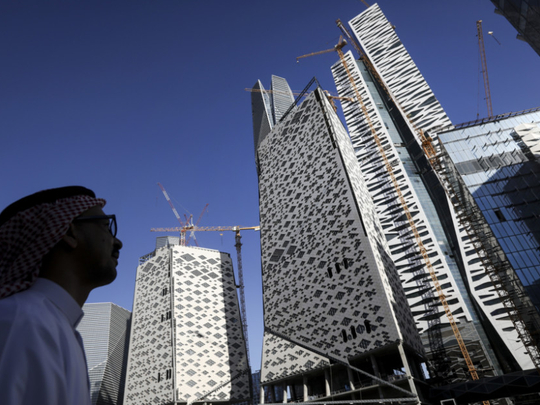
Not too long ago, a news article on the tragic death and the discovery of the body of an Asian labourer at the bottom of an elevator chute, at the parking area of a leading university in Jeddah, had left many shocked.
As the news circulated domestically, it gave rise to animated conversations on social media, reflecting and dissecting the circumstances leading to the death of this unfortunate human being.
One Facebook user wondered how it was technically viable for the doors of an elevator to open with the elevator cage not being there, or was there an element of human error involved. How could this be an accident if the company responsible for the maintenance of the elevator and surrounding facilities was being provided with a satisfactory service report at the end of each month by those responsible for the maintenance work? And how often were these things checked anyway? How was it possible to blame this death on equipment failure, when all the facts pointed to gross negligence on the part of those responsible for the maintenance of the elevator?
One failed to understand why it took the University almost 13 days to discover a bloated corpse within its own facilities? Weren’t there personnel assigned to monitor the activities in such a large complex as a university? And if so, were those responsible doing their jobs? Wasn’t there anyone to supervise these individuals? Or were the supervisors themselves too busy with their private agendas elsewhere?
One chimed in that it was “an act of God”. Based on the disapprovals he got to his post, he quickly retreated into silence. While no one refutes the role of destiny, shouldn’t there still have been a sense of human responsibility?
A female doctor wrote that she questioned the integrity of the contracted company responsible for the shuttling of these labourers back and forth from the job site to their residential camps. Shouldn’t the bus driver or a foreman have noticed the missing person from the first day itself, when there was an empty seat on the bus? And what about this unfortunate man’s compatriots? They should have alerted someone when he failed to show up for dinner back at the camp. Or was it that they were too exhausted at the end of a gruelling day’s work to really bother about someone else? Had the body not started decomposing, it could very well have been the final resting place of the poor labourer’s mortal remains.
I would also want to know why this labourer had not been paid his dues for several weeks by the contracting company, as it was later reported? This could have contributed to the labourer’s death as he was perhaps forced to volunteer to washing cars in the parking area way past his normal duty hours to earn some money. It was quite likely that he had a lot of financial obligations back in his home country and was therefore under constant pressure to meet those commitments.
Long and tiring hours
Many labourers work extremely long hours, and it is cruel to deny them their just dues. In most instances, they are forced to find jobs on the side, as their sponsors often bully them into submission, paying them little or nothing by way of wages or remuneration. They are also threatened with immediate termination of jobs or pay cuts and are forced to do whatever is necessary to send money back home to support their families. In all likelihood, this poor individual’s case was similar. Working long and tiring hours, he was probably too exhausted to notice the absence of the elevator compartment when the doors opened.
While there are laws to control unscrupulous employers, there are often no viable avenues for hapless workers to air their grievances. As long as Saudi Arabia has guest workers, it will continue to have selfish and often cruel employers who will keep on riding on their workers’ toils and fatten their wallets.
In the case of this unfortunate labourer, a benevolent fund was organised for his family members back home, whose only source of income had probably been abruptly ended with this tragic death.
I propose that a marble plaque be placed in the parking area of the university concerned in memory of ‘the unknown worker’ as a reminder of human frailties.
Tariq A. Al Maeena is a Saudi socio-political commentator. He lives in Jeddah, Saudi Arabia. Twitter: @talmaeena.










